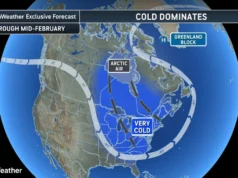
Florida’s unique no-fault insurance system can be challenging to understand, especially when an accident involves a driver who doesn’t have adequate insurance. Navigating the aftermath of a car accident requires a clear grasp of how your Personal Injury Protection (PIP) and Uninsured/Underinsured Motorist (UM/UIM) coverages work together.
These two types of coverage are important for securing full compensation after an accident. A thorough understanding of PIP and UM/UIM coverage can help protect you and your family from unexpected financial burdens. Knowing when and how to access these benefits is key to a smooth recovery process. Keep reading to learn more about how PIP interacts with your Uninsured Motorist claim.
Understanding Florida’s No-Fault System
Florida’s no-fault insurance system is designed to provide quick access to medical care and other benefits after a car accident, regardless of who caused the collision. This system aims to reduce litigation by ensuring immediate financial relief for accident victims. It streamlines the initial recovery process for many drivers.
What is No-Fault Insurance?
No-fault insurance in Florida means your own insurance company pays for your initial medical expenses and lost wages after an accident, regardless of fault. This system ensures accident victims receive prompt medical attention without the delays often associated with determining liability. It helps you focus on recovery.
While no-fault insurance covers immediate needs, there are limitations to filing a personal injury lawsuit against the at-fault driver. To step outside the no-fault system and pursue a claim for non-economic damages, such as pain and suffering, your injuries must meet certain criteria.
According to Florida Statute 627.737, these “threshold injuries” include a significant and permanent loss of an important bodily function, a permanent injury within a reasonable degree of medical probability, significant and permanent scarring or disfigurement, or death.
The Role of PIP in No-Fault
Personal Injury Protection (PIP) coverage is the foundation of Florida’s no-fault system. It covers medical bills, lost wages, and other related expenses following a car accident. PIP benefits generally pay 80% of your medical bills, based on the Medicare fee-for-service payment schedule, and 60% of your lost wages.
Most PIP policies in Florida provide $10,000 in coverage per person, which can help significantly after a crash. It’s important to know this coverage can drop to just $2,500 if your injury isn’t deemed an Emergency Medical Condition (EMC). Prompt medical treatment after an accident is necessary to utilize these benefits effectively. You have 14 days after a car accident to get treatment for a Florida no-fault claim, or your PIP carrier isn’t required by Florida law to extend these benefits.
PIP also includes a $5,000 death benefit, which can be paid to the decedent’s estate, next of kin, a funeral home, or anyone who has paid burial expenses.
Uninsured Motorist (UM) Coverage: Your Essential Safety Net
Uninsured Motorist (UM) coverage serves as a critical safety net in Florida’s insurance landscape. It provides protection when you’re involved in an accident with a driver who doesn’t carry adequate insurance or any insurance at all. This coverage helps ensure you can recover damages even when the at-fault party can’t pay.
Why UM is Essential in Florida
UM coverage is particularly important for Florida drivers due to the high number of uninsured or underinsured motorists on the roads. Florida’s current insurance coverage minimums have been in place since the 1970s, which often means drivers carry insufficient coverage for modern accident costs. In 2023, one in five drivers in Florida, or 20%, was uninsured, making Florida the 6th worst state for uninsured motorists.
According to the Insurance Research Council, the estimate for Florida was 20.9% uninsured motorists, compared to the national average of 12.6%. This means you have a higher chance of encountering a driver who lacks the necessary coverage to compensate you for your injuries. UM coverage protects you and your family if you’re injured by a driver who doesn’t have insurance or enough insurance to cover your damages.
If you don’t have UM coverage, you might be personally responsible for significant medical bills and other losses if an uninsured driver injures you. It helps ensure your financial security after an unexpected accident.
Types of UM Coverage: Stacking vs. Non-Stacking
When purchasing Uninsured Motorist coverage, you typically have two options: stacking or non-stacking UM. Understanding the difference is important, as it directly impacts the total amount of coverage available to you.
These options determine how your policy limits apply to your accident. Non-stacking UM coverage limits the amount you can recover to the specific UM coverage listed on a single vehicle policy, regardless of how many vehicles you own. Stacking UM coverage, however, allows you to combine the UM limits from all vehicles on your policy, potentially increasing your total coverage.
For example, if your auto policy has $100,000 of UM coverage and you insure two vehicles, stacked UM provides $200,000 of coverage. This can be a significant advantage, especially for households with multiple vehicles, as it offers greater protection. Always check your policy details to understand which type of UM coverage you have.
The Crucial Interaction: PIP as Primary Coverage
Understanding how Personal Injury Protection (PIP) and Uninsured Motorist (UM) coverages interact is fundamental to navigating a claim in Florida. This interaction dictates the order in which your benefits are applied. It’s important to know which coverage will pay first.
Order of Benefits: Who Pays First?
In Florida’s no-fault system, PIP is generally the primary coverage for your initial medical expenses and lost wages following an accident. This means your PIP policy will typically pay out benefits before your UM coverage becomes active for these types of damages.
This “order of benefits” is designed to ensure you receive prompt treatment and financial support. PIP benefits will cover a percentage of your medical bills and lost wages up to your policy limit, usually $10,000.
It’s only after these PIP benefits have been exhausted, or are close to being exhausted, that your UM coverage will typically become relevant for additional medical costs. This sequence helps manage the immediate aftermath of an accident.
Exhausting Your PIP Benefits
“Exhausting” your PIP benefits means you’ve used up the maximum amount available under your policy, usually the $10,000 limit. Once your medical bills and lost wages reach this threshold, your PIP coverage for those specific expenses will cease.
This exhaustion is a key point in your claims process. However, exhausting your PIP benefits doesn’t mean your medical treatment stops or that you have no further recourse for your accident-related expenses. Instead, it often serves as a trigger for accessing your Uninsured Motorist benefits.
At this point, your UM coverage can step in to cover additional medical expenses that exceed the PIP limit. This transition is important for continuing your recovery without significant financial strain.
When Uninsured Motorist (UM) Coverage Kicks In
Uninsured Motorist (UM) coverage becomes active once your Personal Injury Protection (PIP) benefits are exhausted. It provides a vital layer of financial protection, covering damages that extend beyond what PIP can provide. This ensures you don’t bear the full financial burden of an accident caused by an uninsured driver.
Recovering Medical Expenses Beyond PIP
Once your PIP benefits have been fully utilized, UM coverage can begin to cover additional medical expenses that exceed the initial PIP limit. This includes ongoing doctor’s visits, specialist consultations, hospital bills, prescription medications, and rehabilitation costs.
It provides much-needed financial relief for long-term or extensive injuries. UM coverage ensures you can continue to receive necessary medical treatment without interruption, even after your no-fault benefits have run out.
This is particularly important for severe injuries that require extended care and therapy. It helps bridge the gap between initial recovery and full rehabilitation.
Compensating for Lost Wages and Pain and Suffering
Beyond medical bills, UM coverage also compensates for other significant damages that PIP doesn’t fully address. It can cover additional lost wages that exceed PIP’s 60% reimbursement. This helps ensure you can maintain financial stability if your injuries prevent you from working for an extended period. Critically, UM coverage also provides compensation for non-economic damages, such as pain and suffering, mental anguish, and loss of enjoyment of life. These types of damages aren’t covered by PIP and can represent a significant portion of a personal injury claim. UM coverage acknowledges the full impact of your injuries on your life.
Navigating the Claims Process with Both PIP and UM
Dealing with the aftermath of an accident, especially one involving an uninsured driver, can be overwhelming. Understanding the correct steps for filing claims involving both Personal Injury Protection (PIP) and Uninsured Motorist (UM) coverage can simplify the process. Proper navigation helps ensure you receive the compensation you deserve.
Immediate Steps After an Accident with an Uninsured Driver
After an accident with an uninsured driver, your immediate safety and actions are very important. First, ensure everyone’s safety and move to a secure location if possible. Contact law enforcement to report the accident and ensure a crash report is filed.
This report must be filed with the Florida Department of Highway Safety and Motor Vehicles within 10 days of the accident. Gather as much evidence as you can, including photos of the scene, vehicle damage, and any visible injuries.
Collect contact information from any witnesses. It’s important not to admit fault at the scene, as this can negatively impact your claim. Promptly report the accident to your own insurance company, informing them that the other driver was uninsured.
Filing Both PIP and UM Claims
Initiating both a PIP claim and a UM claim with your own insurance company is a crucial step after an accident with an uninsured driver. You’ll need to provide various forms of documentation to support both claims.
This documentation often includes medical bills, records of treatment, and verification of lost wages from your employer. Accident reports and any evidence you collected at the scene will also be necessary. Maintain clear and consistent communication with the insurance adjusters, but be cautious about providing recorded statements without understanding their implications.
It’s advisable to consult with an attorney before providing any recorded statements to any insurance company, as these statements can be used to minimize your claim. Thorough record-keeping of all expenses, communications, and medical appointments is very important throughout the entire claims process.
Common Challenges and Disputes in PIP and UM Claims
Even when you have both Personal Injury Protection (PIP) and Uninsured Motorist (UM) coverage, the claims process can present various challenges. Insurance companies may dispute aspects of your claim, leading to delays or reduced compensation. Understanding these potential hurdles can help you prepare.
Disputed Medical Bills and Treatment
One common issue in both PIP and UM claims involves insurance companies disputing the necessity or reasonableness of medical treatment. They may delay payments, deny claims for certain procedures, or argue your injuries aren’t directly related to the accident.
These disputes can significantly impact your recovery. When medical bills are disputed, it affects how your PIP benefits are allocated, potentially leaving less for other immediate needs. This can also delay the exhaustion of PIP benefits, which in turn affects when UM funds become available for your medical expenses. Such disagreements often require careful documentation and, at times, legal intervention.
Valuing Pain and Suffering in a UM Claim
Quantifying “pain and suffering” is often one of the most subjective and contentious aspects of a UM claim. Unlike medical bills or lost wages, which are quantifiable, pain and suffering encompass physical discomfort, emotional distress, mental anguish, and the overall impact on your quality of life.
Insurance companies frequently aim to minimize payouts for these non-economic damages. Factors considered in valuing pain and suffering include the severity and permanence of your injuries, the impact on your daily activities and relationships, and the duration and intensity of your recovery.
Because insurance companies prioritize their financial interests, they may offer low settlements for pain and suffering. This makes expert valuation and strong negotiation crucial to securing fair compensation. You can learn more about how pain and suffering is calculated in personal injury claims.
Maximizing Your Compensation: The Role of an Attorney
Navigating the complexities of Personal Injury Protection (PIP) and Uninsured Motorist (UM) claims can be challenging, especially while recovering from an accident. An experienced Florida personal injury lawyer can provide invaluable assistance. Their expertise can help ensure you receive the maximum compensation you deserve.
Ensuring All Benefits Are Utilized
A skilled attorney understands the intricacies of Florida’s no-fault system and how PIP and UM coverages interact. They can ensure all available PIP benefits are properly accessed and utilized without unnecessary delays or denials from your insurance company.
This includes addressing any disputes regarding medical treatment or billing. Once PIP benefits are exhausted, an attorney can strategically transition to maximizing your recovery under your UM policy. This includes meticulously calculating all damages, from ongoing medical expenses and lost wages to significant pain and suffering. They work to ensure you receive comprehensive compensation for the full extent of your injuries.
Negotiating with Insurance Companies
It’s important to remember that insurance companies, even your own, are businesses primarily focused on minimizing payouts. They often have experienced adjusters and legal teams dedicated to settling claims for the lowest possible amount. Attempting to negotiate with them alone can put you at a disadvantage.
A personal injury attorney acts as your fierce advocate, negotiating on your behalf and challenging lowball offers. They leverage their legal knowledge, experience, and understanding of case precedents to secure fair compensation for your injuries and losses. According to a study by the Insurance Research Council, claimants who hired attorneys received, on average, 3.5 times more compensation than those who didn’t.
Conclusion
Understanding the complex interaction between Personal Injury Protection (PIP) and Uninsured Motorist (UM) coverage in Florida’s no-fault system is very important for securing comprehensive protection after an accident with an uninsured motorist. Navigating these claims effectively ensures you receive proper compensation for your injuries and losses.
The claims process can involve many challenges, from disputed medical bills to the complex valuation of pain and suffering. These hurdles often require a deep understanding of insurance law and strong negotiation skills. Dealing with insurance companies on your own can be overwhelming and may result in an unfair settlement.
Disclaimer
The information contained in South Florida Reporter is for general information purposes only.
The South Florida Reporter assumes no responsibility for errors or omissions in the contents of the Service.
In no event shall the South Florida Reporter be liable for any special, direct, indirect, consequential, or incidental damages or any damages whatsoever, whether in an action of contract, negligence or other tort, arising out of or in connection with the use of the Service or the contents of the Service.
The Company reserves the right to make additions, deletions, or modifications to the contents of the Service at any time without prior notice.
The Company does not warrant that the Service is free of viruses or other harmful components












